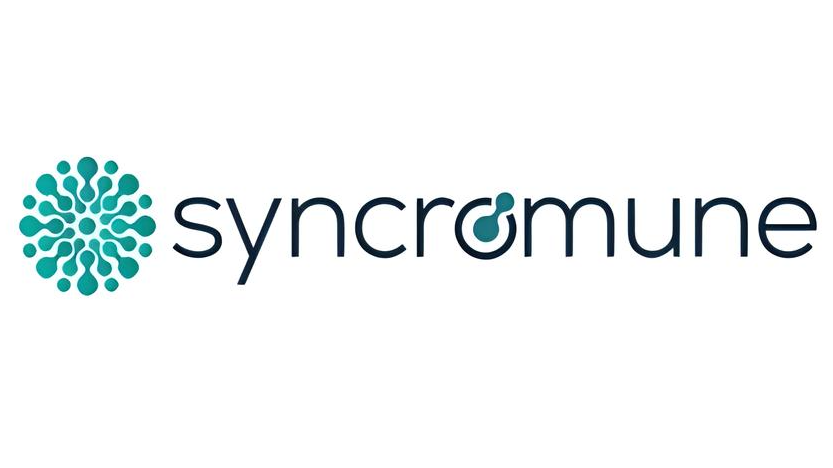
Syncromune Announces FDA Clearance of IND Application for SYNC-T SV-102
Syncromune, a clinical-stage biopharmaceutical company focused on the development of SYNC-T, an in situ personalized therapy platform optimized for solid tumor cancers, announced that the U.S. Food and Drug Administration (FDA) has cleared the investigational new drug (IND) application for SYNC-T SV-102, its lead candidate for the treatment of patients with metastatic castrate-resistant prostate cancer.
“Receiving clearance of our IND is a significant milestone for Syncromune and will allow us to rapidly advance the clinical development of SYNC-T SV-102.
This clearance, following our recent presentation at AACR of data demonstrating unprecedented response rates, underscores the potential of SYNC-T SV-102 to change the landscape of prostate cancer treatment,” – said Eamonn Hobbs, President and CEO of Syncromune.

“We are thrilled to obtain clearance to advance the SYNC-T SV-102 Therapy and the company is well-positioned to achieve key program milestones.
The prospects of this new combination multi-target approach and its broad potential applicability in the treatment of metastatic solid tumor cancers is incredibly exciting,” – added Charles Link, Executive Chairman of Syncromune.

The SYNC-T platform is a novel and personalized in situ therapy that uses a unique combination approach of partial tumor oncolysis and a multi-target biologic drug comprised of four active pharmaceutical ingredients (APIs).
First, oncolysis is performed via freezing to disrupt a portion of a target tumor which facilitates the release of cancer-specific signals and tumor antigens, activating the immune system and creating an in situ vaccine.
Next, a fixed-dose combination multi-target biologic drug, SV-102, is directly infused into the tumor site. This is intended to further stimulate the immune system and block mechanisms that suppress the immune response. The combination approach is designed to promote T cell activation and proliferation, empowering the immune system to recognize and attack patient-specific cancer throughout the body.
In a Phase 1 trial conducted in metastatic castrate-resistant prostate cancer patients, SYNC-T SV-102 demonstrated an objective response rate (ORR) of 85% with five complete responses (CRs) and six partial responses (PRs) among the 13 evaluable subjects. Notably, 54% of the subjects demonstrated complete resolution of their bone metastases. The treatment was well tolerated, with a favorable side effect profile and no significant safety concerns.
For more information about Syncromune and its ongoing clinical trials, please visit Syncromune’s website.
About Syncromune
Syncromune is a privately held, clinical-stage biopharmaceutical company dedicated to the development of an in situ platform technology optimized for metastatic solid tumor cancers that aims to achieve high response rates with potentially improved survival. The company is currently developing SYNC-T, a novel and personalized combination biologic drug/device therapy platform. SYNC-T is designed to synchronize in situ patient-specific antigen T cell activation and immunostimulation via intratumoral infusion, to enable the immune system to recognize and attack cancer throughout the body. The first two candidates, SV-101 and SV-102, are currently in Phase 1 trials.
About SYNC-T
Syncromune is developing SYNC-T, a personalized in situ combination biologic drug/device platform designed to activate T cells and stimulate the immune system to treat metastatic solid tumors. SYNC-T utilizes a combination approach of in situ vaccination via device-induced partial oncolysis and intra-tumoral infusion of a multi-target biologic drug, aiming to synchronize the timing and location of tumor antigen release with the functional activation of immune cells. The therapy is designed to activate the immune system and combat immune suppression, resulting in patient-specific T cell activation. The proliferation of anti-cancer T cells can enable a systemic anti-tumor response, attacking cancer throughout the body.
-
Challenging the Status Quo in Colorectal Cancer 2024
December 6-8, 2024
-
ESMO 2024 Congress
September 13-17, 2024
-
ASCO Annual Meeting
May 30 - June 4, 2024
-
Yvonne Award 2024
May 31, 2024
-
OncoThon 2024, Online
Feb. 15, 2024
-
Global Summit on War & Cancer 2023, Online
Dec. 14-16, 2023
